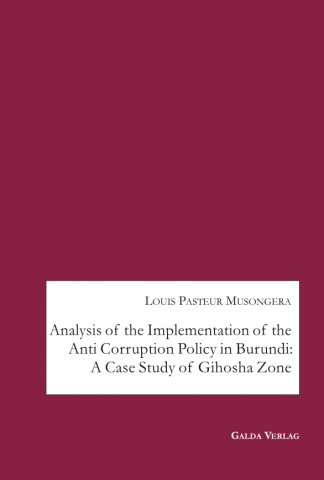Description
This study used descriptive and case study research design and opted qualitative research approach. Simple random sampling was used to select respondents with a sample size of 138 participants.
The study used both primary and secondary sources of data. Primary data were collected using an interview guide while secondary data was obtained by exploring the legislative and lawful texts, the doctrinal works, and works of end of cycle, thesis and so on. The study used interview as data collection technique and interview guide as a tool. For data analysis, 5Likert scales was applied to evaluate the effect of the variables of the study.
The research shows that there is undeniably corruption in quite all public services rendered to the population at local level; that the activities of anti corruption agencies are not seen in the population which makes people to ignore the existence of theme and very little effort is done to announce their missions.
The recommendations from this study include those concerning the administration systems, preventive actions, the application of the zero tolerance policy, specific actions to be taken to reduce corruption within the policemen, and the role of citizens.


